Mute Madness!
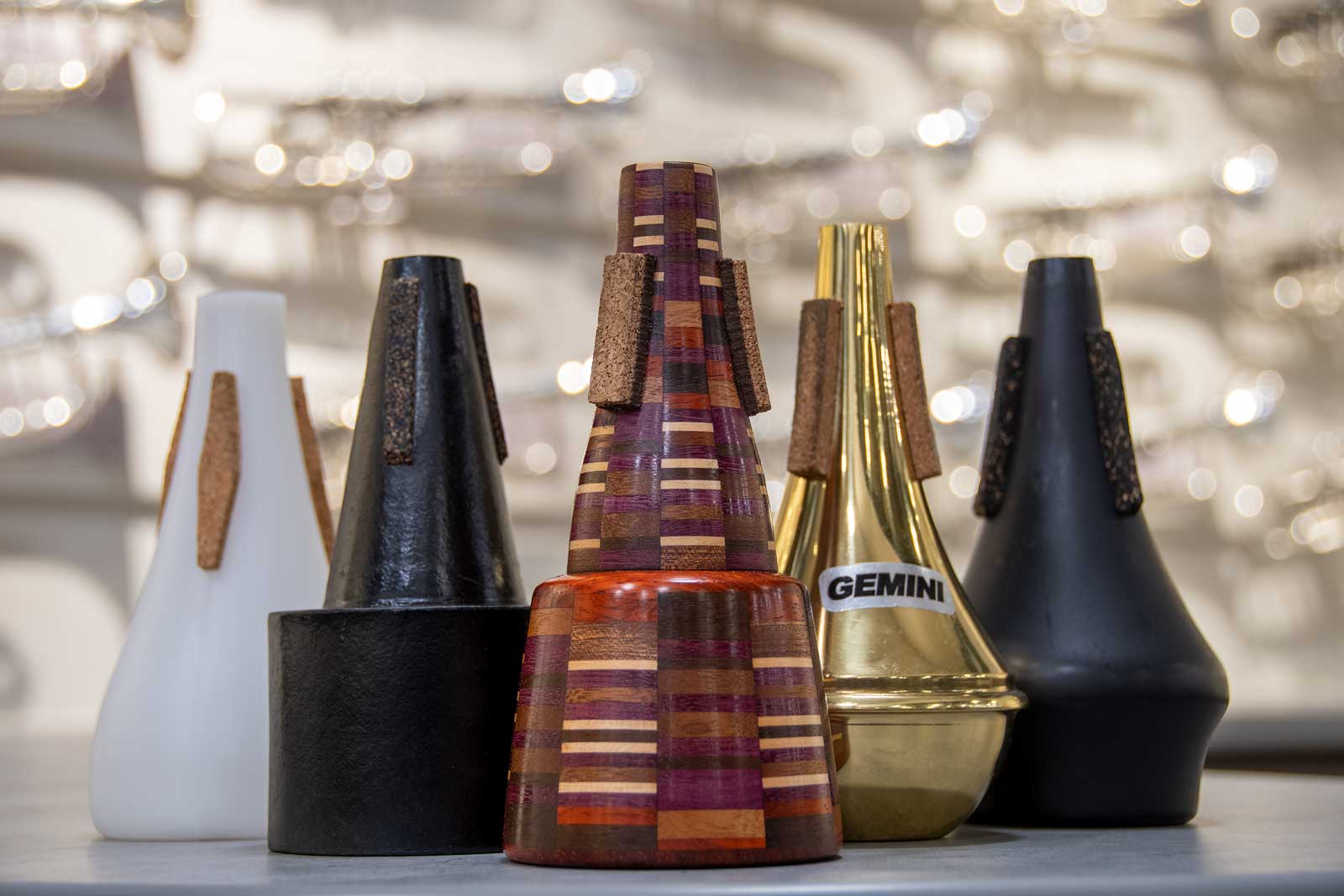
Happy Thursday, everyone. Today’s topic is one of my favorite to talk about: Mutes. As stated by Philip Smith, former principal trumpet of the New York Philharmonic 1978-2014, “A trumpet player can never have enough mutes of varying types, shapes, sizes, and materials”. With that being said, as trumpet players (and other brass players who may be reading) we are often asked to use a device called a mute while playing certain music. This does not always mean making our sound softer per se, but changing our timbre. Today we’ll talk about the most common mute we are asked to use: the straight mute.
Straight mutes come in many different materials which include metal (aluminum, brass, copper, even stainless steel), plastic, wood, fiber board, and fiberglass. The amount of different shapes and sizes is also astounding. I brought a few from my collection to show you what they can look like and briefly talk about advantages and situations where they could be used.
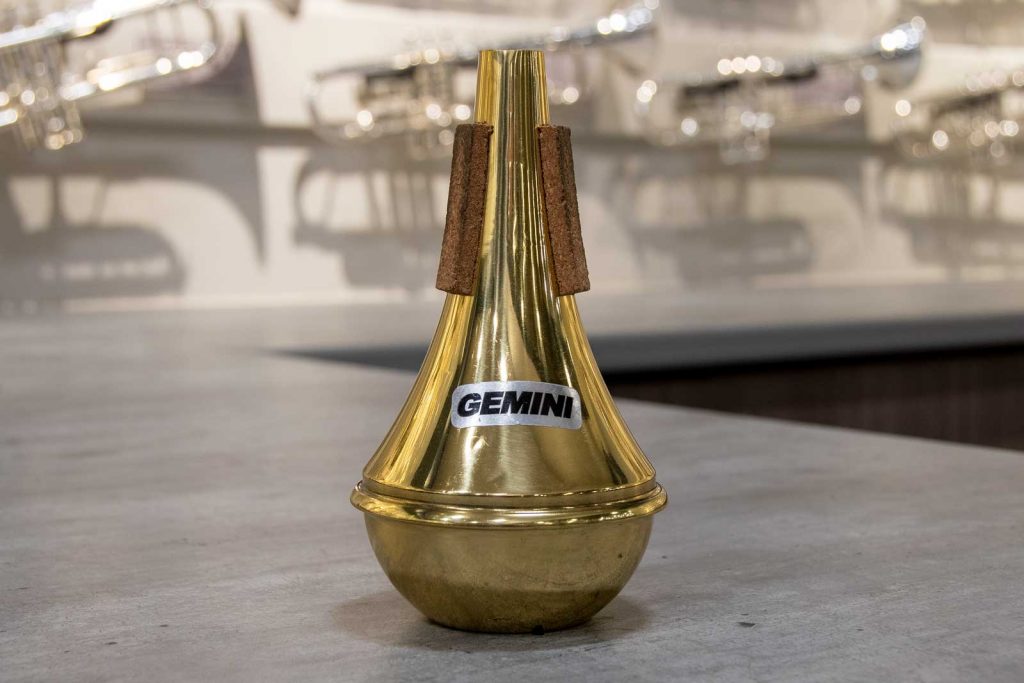
Metal: The metal straight I have pictured is the “Gemini” model made by Tom Crown, made entirely of brass. Metal mutes are typically loud and very buzzy. The metals they are made from also impact the sound qualities. An all-aluminum mute will be good in most situations while mutes with a copper or brass end, or made entirely from those particular materials make for a more rich and colorful sound
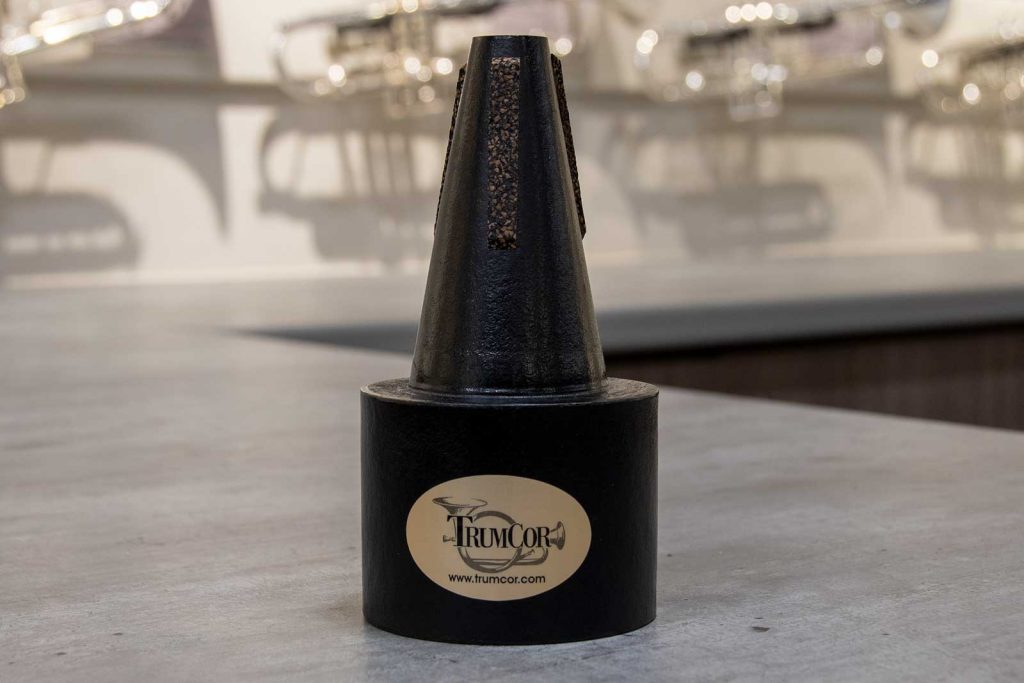
Fiber: The go-to example of a fiber mute is the ‘Lyric’ mute by TrumCor. This mute is fantastic for softer passages, or for getting a different set of sonic colors to paint with. Every professional player I have worked with has this mute.
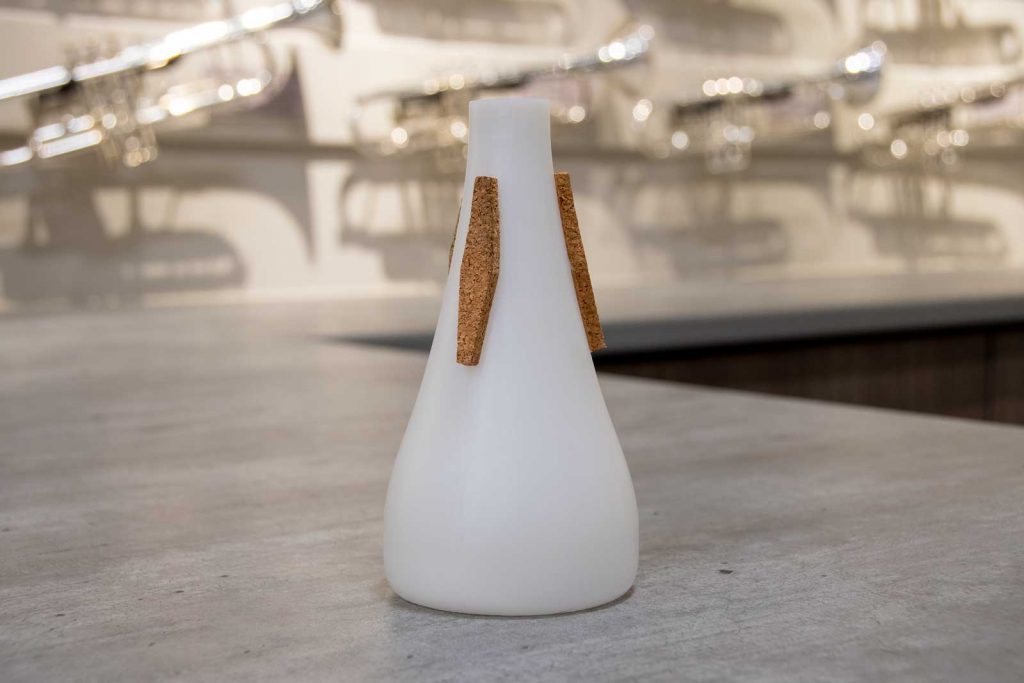
Plastic: Yes, they make mutes out of plastic! Plastic mutes are durable and somehow get a sound characteristics of metal, which can be the buzz quality and also more warmth as well. One of the most common examples is the plastic straight by Vincent Bach. Plastic mutes are good options for adding sound without being intrusive to the ensemble.
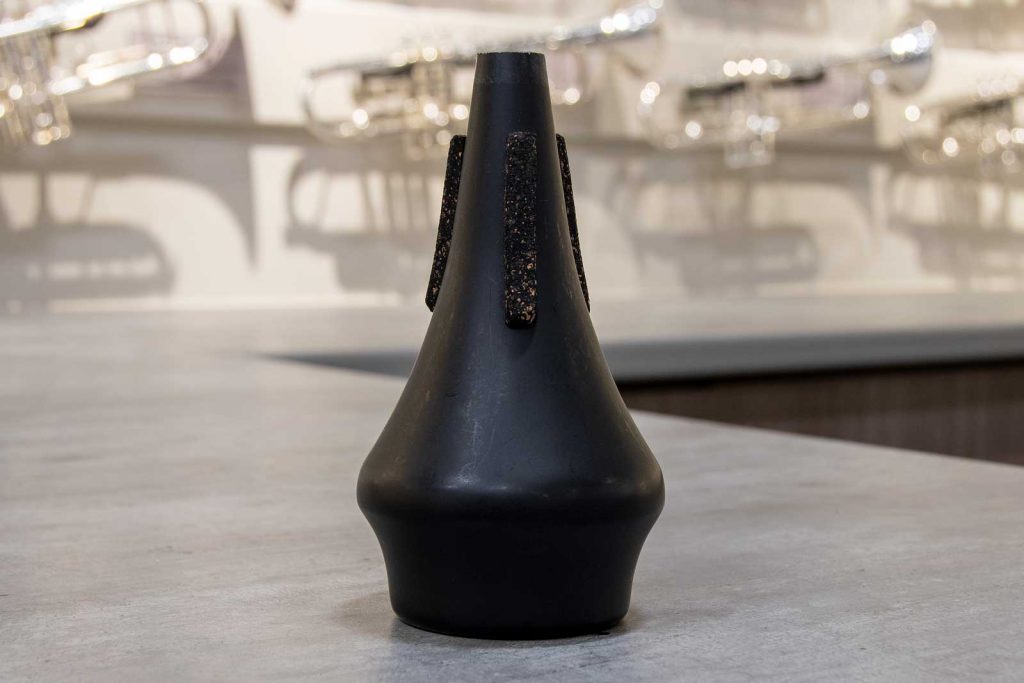
Fiberglass: Many of the musicians in Indianapolis and elsewhere will use a straight mute made of fiberglass made by Brazilian manufacturer, Marcus Bonna. These mutes are versatile in that they come in a large and small size (large is pictured), and can achieve great blend with other wind instruments without sacrificing that overall muted trumpet quality that can happen when using a softer fiber board mute. They can also play very loudly when needed, making them a good choice for any university or professional player’s bag. It was strongly suggested I buy one when I did some recording in the studios here in town, for the reasons stated above!
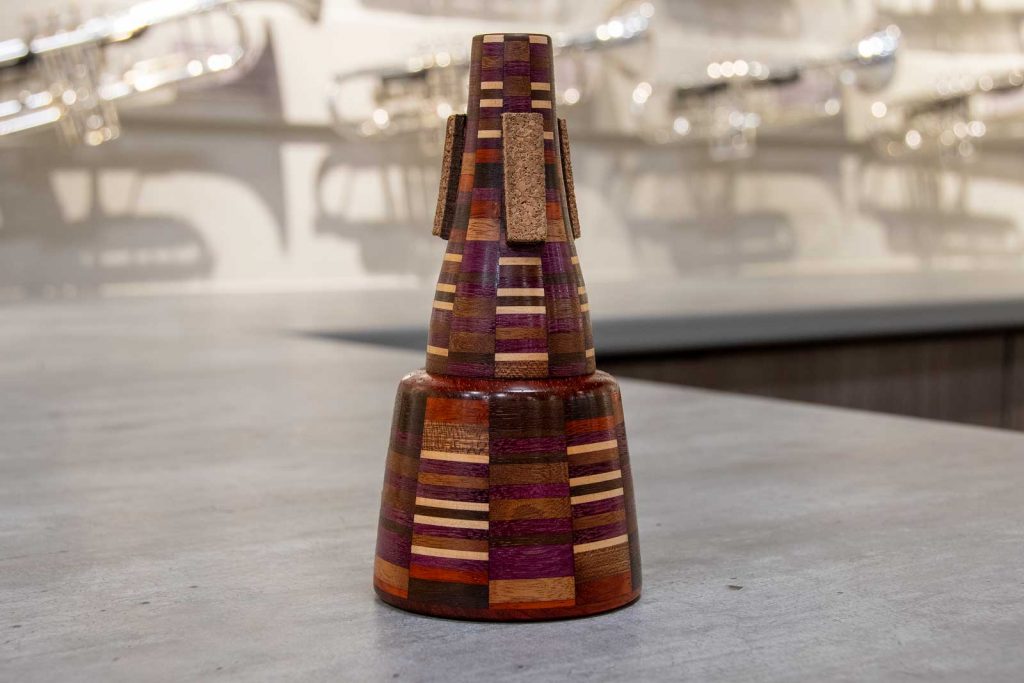
Wood: Straight mutes made of wood are visually striking and get special sounds. They can be loud and project like metal mutes, or can be soft and intimate like certain fiber or plastic mutes. Since they are so various in shape and woods, I don’t see them often but if a player is using one they are either playing in a small chamber ensemble or using it in a solo situation.
There are still more materials and many other examples out there. If you have questions about mutes or their specific situations, please contact me. Probably when you have lots of free time, because I love to talk about mutes!

No Comments